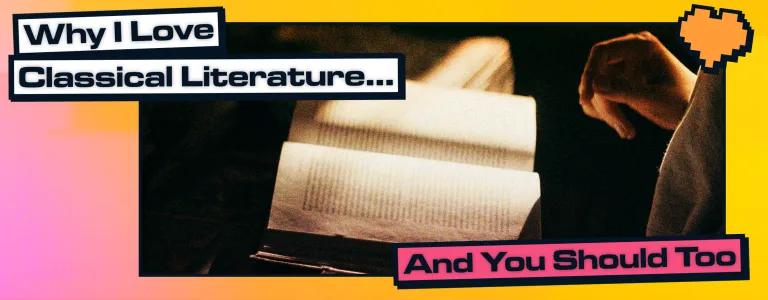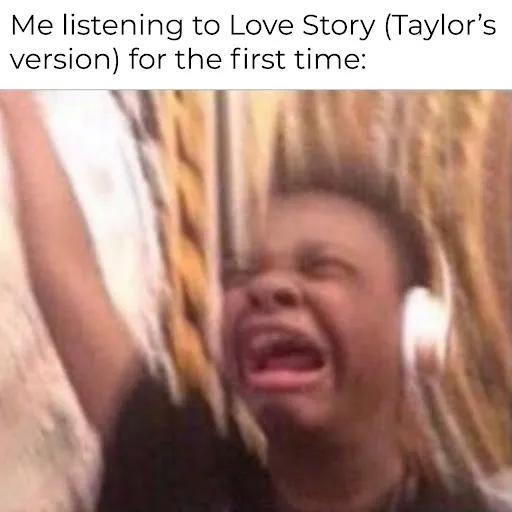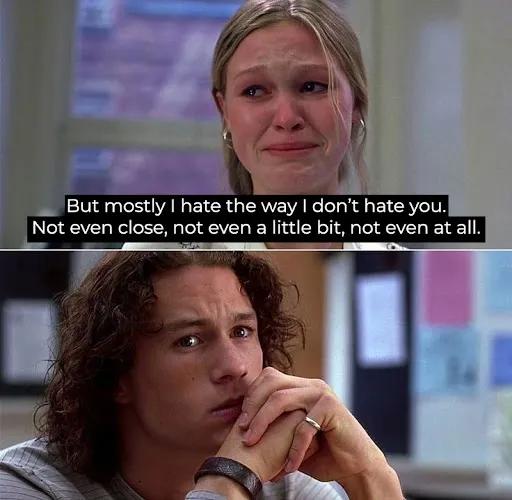
Why I Love Classical Literature…And You Should Too
Written by O. Hadgie who loves pretending to be the main character in a Virginia Woolfe novel.
3 min read
Classical literature; the bane of every student’s life, am I right?
Except…it doesn’t have to be.
For most, classical literature amounts to whatever is taught in English class, tearing every word and syllable to shreds in search of some hidden meaning. I’m already yawning.
“But what does it mean when he says the door is blue?” Probably just that the door was blue!
Who cares if her dress was red or if his wife had been trapped in the attic for years right? How does that apply to the right here, right now? Sometimes it seems that classical literature can’t relate to the present.
Or can it?
It’s a love story, baby, just say yes…
For the majority of my secondary school education, I was right by the rest, bemoaning the fact that we had to read books written by long-dead white men, who didn’t have much to say but said it in sentences that could have been at least sixty words shorter. I took a vicious pride in my hatred for the classics, as though my refusal to read them was a sort of ‘take that’ to those authors rolling in their graves. However, something changed during year 11.
Call it what you will. Fate. Destiny. A brilliant English teacher. Whatever it was, a flip switched during a lesson on Romeo and Juliet; the star-crossed lovers who have snuck their way into every inch of romantic pop-culture. I can already hear Love Story (Taylor’s Version) being played on Spotify.

Despite being written over four centuries ago, the dynamic between Romeo and Juliet is deliciously modern. A lovelorn boy, head-over-heels for a girl determined to get her happy ending, no matter what her parents and society say.
‘She fell first, he fell harder’ was invented by them, I say.
There’s something magical about reading source material and seeing where it ends up in modern society. Romeo and Juliet has been washed and recycled into paragons of romance, cautionary tales, and thousands of stories of over-impulsive young people ready to dive headfirst into first relationships.
The making of modern magic…
And it’s not just Romeo and Juliet. Shakespeare’s comedies and tragedies have been adapted time and time again, making you feel the full range of human emotion. Here are some films you might not have realised are adaptations of Shakespeare's works:
- Ten Things I Hate About You aka Taming of the Shrew
- She’s The Man aka Twelfth Night
- Anything But You aka Much Ado About Nothing

Just as these films have secured their place in the romantic comedy, chick-flick hall of fame, their source material deserves as much acclaim. Much Ado About Nothing, my personal favourite, has everything you need for a laugh: exes to enemies to lovers, hair-brained schemes, and a good old faked death.
Seeing yourself in someone else…
In my opinion, Shakespeare isn’t somebody who was forceful with his meanings. The beauty of his works and the reason they’re still being performed 400 years later is due to the versatility of their messaging and the universality he provides through the vagueness of his intentions. Often, teachers get obsessed with trying to search for authorial intent, but sometimes the beauty of a work is watching what mirror it holds to you.
In his prefix to The Picture of Dorian Gray, his sole novel, Oscar Wilde writes that art is a reflection of the spectator not the painter. So maybe some people find classical literature hard to get on with, not because of its form, but because of our prejudices against it.
Don’t knock it ‘til you’ve tried it…
There’s a stereotype that the classics are insufferably dull. They tell long stories not worth hearing, or that are better translated on the screen with the best directors and the newest actors. And while I do agree that Greta Gerwig’s adaptation of Little Women lives in my soul as one of the greatest works to grace modern cinema, I don’t think classical literature - in book form - should be tossed aside simply because of ‘long, complicated sentencing.’
By immediately refusing to read classical literature, I believe you miss out on some of the greatest wits of the ages. Just because something is old does not mean it can’t be incredibly funny! In The Picture of Dorian Gray, the characters are delightfully devilish, and unapologetic in their immorality, in a way that is unexpected for a Victorian novel. Dorian Gray himself has the pretty face and lack of impulse control that would make him the Internet’s obsession if the book was released today.
And Frankenstein, by Mary Shelley, has a narrator who is just self-motivated and self-loathing enough to make him intensely compelling, as he makes wrong decision after wrong decision.
You want something great? Go classic…
You see, underneath societal norms and shifts in language and dialect, humans have always been humans, and until time travel becomes invented, literature is one of the best ways to look back at everyone and everything that has been.
What I’m trying to say is, the classics don’t need to be seen as these grim chunks of texts that you have to slog your way through and feel like you’re falling into a slow death by reading. They can be just as exciting, violent, and cheeky as any modern thriller. As swoon-worthy as any modern romance novel (I mean who could top Mr Darcy), and as snort-inducing as anything written by a comedian today. It’s comforting to see the feelings welled up inside your chest reflected in the writings of someone living fifty, one hundred or even half a century ago. So go on, take a chance and get a blast from the past; you never know what you’ll end up learning – both about the world and yourself!

